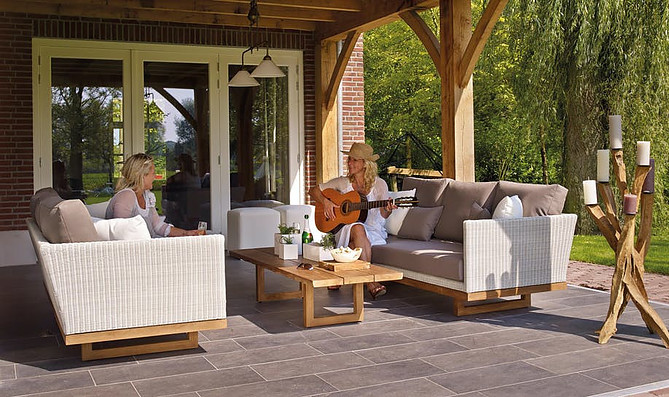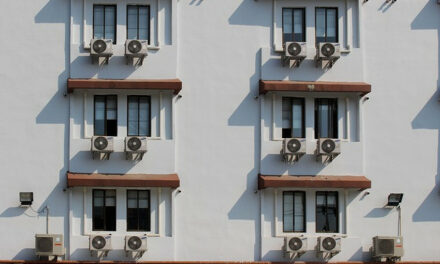Looking for some ideas for outdoor entertainment? Want to know what a Pergola is? What should you know before getting a Pergola? How many different types of pergolas are available in the market? What is the difference between a pergola, pavilion, trellises, and arbors? What are some benefits of having a Pergola? What are some challenges to having a Pergola? How much would it cost to have a Pergola installed in a property? Should you buy a Pergola or build it? How long years would a Pergola last? What is the return value of having a Pergola? Is it worth to have a pergola in an investment property? Does it add value to your property? Do you need to add Pergola to your rental property? We will be covering all those questions in this guide.
If you are looking into some options of Pergolas, I am sure at least most of the above questions must have come to your mind. Because, generally, these are the questions people are often confused about during making a decision about installing a pergola.
I was too when I didn’t know anything about it decades ago. After doing multiple property improvements over the years, I am fairly certain then I can answer these questions confidently today.
So, in this article, I will answer all of the above questions along with some other questions which might be able to help your property journey too.
First thing first. Let’s define the pergola.
What is a Pergola?
Let’s start with a definition of Pergola.
A Pergola is an outdoor feature. It is placed in a garden. A structure of a Pergola can be described as an arch. A Pergola stands on vertical posts that support the beam. A Pergola is usually covered with plants. They look aesthetically pleasing on the property.
In Europe, a Pergola has been a famous choice for gardens for many years. Even to this day, pergolas are still quite popular.
Things You Should Know Before Getting a Pergola
There are some things you need to consider before getting a Pergola installed. These things are mentioned below:
1. Why You Want a Pergolas?
Determine the reason why you want a Pergola is important.
What purpose do you want it to serve? When you have decided on all these things, only then you will know what type of material to choose and what type of design to go with.
There could be any number of reasons for wanting a Pergola. For instance, it can be used for the purpose of sunbathing or for dining outdoors in the garden.
2. What Should Be The Size Of Your Pergola?
Now, that you have determined the reason for wanting a Pergola, come to the size.
Decide the size of the Pergola. How much space do you want it to take off your garden? This can be determined by guessing how many people at a time will be under the Pergola.
Because a big Pergola will take up unnecessary space in your garden and similarly a small pergola would take less. If you stick with a big pergola beyond your needs, you won’t be able to get much use of it, but most of your garden space would be wasted.
3. What Should Be The Budget for Your Pergola?
Dare I say, it’s the most important part of the whole process. Having a budget would make the entire process of installation a lot easier. You will know beforehand, how much you will need to spend on each material.
While making the budget, make it realistic, and then try to stick with it.
Once, you have set the budget, then you can start asking for the quotations from different contractors.
4. Local Council
The installation of a Pergola requires a permit. So, check with your local council regarding the rules and regulations. They will tell you all about a suitable design for your Pergola. You can also ask your neighbors for guidance and tips regarding the local laws if they have a Pergola.
5. Contractor
You will also need a contract to install the Pergola.
The installation of Pergola requires a lot of planning. After collecting information on all of the above-mentioned things, you now need to find a suitable contractor. Look for the person, who can understand your vision. Making a mistake at this point can really ruin the whole process. A contractor can also guide you about the local rules and regulations of building a pergola. So, make sure to be careful in choosing the right person.
You can visit the contractor’s website in the first instance. Scroll the websites. Contact the numbers that are displayed there. Don’t be afraid to ask your questions. Then if you like the way the conversation goes, ask for a site visit for a free quote with no obligations.
Note: Reviews on the website will really help you make the right decision. So, you must check them out.
Types of Pergolas
There are many types of pergolas available in the market. So, there are lots of options to choose from.
Some of these options are given below:
- Steel Pergola
Sail Pergola is a very famous choice. They are known for their durability and strength. The life span of a Steel Pergola is very long. A steel Pergola looks great in a modern home. There are many designs available in them, if you are choosing the steel Pergola option.
- Sail Pergola
In this type of Pergola, a stretched sail has used material for the roof. This type of material is also durable and lasts a long time. A Sail Pergola is a popular choice for sleek and modern style properties. But, they are expensive to install.
Below video shows what is a sail and how to install one.
- Gabled Pergola
The gabled Pergola is known because of its triangle-shaped roof. When the rain falls, the water runs off from the roof easily. It doesn’t just stay there. The Gabled Pergola provides an added benefit of height. It is an attractive option.
- Solar Power Pergola
They are a very cost-efficient option. These types of pergolas are good for putting solar plates (panels) on. They are very good for the environment.
- Pitched Pergola
These types of pergolas are known because of there distinctive shape. The roof of the pergola is angled.
Just like the Gabled pergola, it doesn’t allow the water to stay on the roof. Because of its shape, the water runs off easily.
They are suitable for areas with frequent rains.
- Open-top Pergola
The type of pergolas that do not have roofs is known as open-top pergolas. The design of the pergola allows the air to cross. This type of design looks good in the garden. They are also quite good for providing added privacy.
Now let’s turn into pavilions, arbors and trellises to find out how those structures are different from pergolas.
What is a Pavilion?
A pavilion can be described as a structure that has no walls. It stands on vertical posts and a horizontal roof. The pavilion is placed in a garden. It works as a source of shelter when people want to sit in a garden and relax.
Difference Between Pergola and Pavilion
Pergola and Pavilion may look the same, but they are different from each other. Some of these differences are given below:
- A pavilion has a real roof while the pergola does not have a solid roof.
- A pavilion is bigger as compared to the pergola.
- A pergola looks more beautiful as compared to the pavilion.
- Because of its size, a pavilion is more suitable for a bigger house.
What is an Arbor?
An Arbor is also a place for shelter. It is placed in the entrance of the garden. An arbor is formed by joining the trees, in such a way that it provides shelter.
What is the Difference Between Arbor and Pergola?
- An arbor has a low installation cost than a pergola.
- A pergola is usually bigger in size than the arbor.
- Because of its size, the installation process of the pergola is longer than the arbor.
- Pergolas are sturdier than the arbor.
What is Trellises?
Trellises can be of two types. One type could be a panel attached to a structure. The other type entails a freestanding structure in the garden. The plants can grow on it.
What is the Difference Between Trellises and a Pergola?
- The structure of the trellises is different than the pergola.
- A trellis is much smaller in size as compared to the pergola.
- A Pergola has more strength than the trellises.
Benefits of Pergola – Is It Worth To Have a Pergola? Who Should Have a Pergola?
Pergola has many benefits. I have mentioned them below:
- Pergolas enhance the beauty of a garden.
- A pergola creates an outdoor space for you.
- There are many designs and options to choose from.
- You can enjoy outdoor gatherings under the pergola.
- They are a source of shelter, you can sit under them and get some fresh air.
- The life span of a pergola is very long.
- They are known for their durability factors.
- A pergola comes with low maintenance.
- A pergola blocks the direct light from the sun.
- A pergola is an inexpensive option for the property. (But it depends!)
- A property that has a pergola in it will have a good resale value.
Challenges of Having a Pergola
- Although a pergola requires low maintenance, it doesn’t mean it will require none.
- If you are planning on selling the property, you may have trouble selling because some people may not want the responsibility of a pergola.
- A pergola is very durable but its appearance may change after some time.
- A pergola takes a lot of time to be installed and not a job for one handyman carpenter.
- Because of its roof and open vertical space, a pergola cannot protect you from heavy rain or storm.
- Some of the materials that pergola comes are not as durable as the others.
Cost of Pergola Installation
As mentioned above, a pergola comes with a lot of designs and materials. There are two ways to install a pergola. You can either build it or you can buy the pergola kits from the market.
Cost of a 10 ft Pergola by Material
Custom Pergolas
- For Pine
The cost of Pine for 10 ft pergola will be around $2500 US dollars.
- For Fiberglass
The cost of Fiberglass for 10 ft. pergola will be around $6000 US dollars.
- For Redwood
The cost of Redwood for 10 ft. pergola will be around $4500 US dollars.
- For Cedar
The cost of Cedar for 10 ft. pergola will be around $3000 US dollars.
- For Alumawood
The cost of Alumawood for 10 ft. pergola will be around $1500 US dollars.
- For Vinyl and Aluminium
The cost of Vinyl and Aluminium for 10 ft. pergola will be around $2000 US dollars.
- For Teak, Ipe, and Customized design
The cost of Teak, Ipe, and customized design for 10 ft. pergola will be around $5500 US dollars.
The blow table summarises the costs of custom made pergolas depending on the main material used for the construction.
|
Pergola Material |
Cost for a 10Ft Pergola (USD) |
|
Wood – Alumawood |
$1,500 |
|
Wood – Pine |
$2,500 |
|
Wood – Cedar |
$3,000 |
|
Wood – Redwood |
$4,500 |
|
Vinyl and Aluminium |
$2,000 |
|
Teak, Ipe, and Customized design |
$5,500 |
|
Fiberglass |
$6,000 |
Tip: We earlier covered how to raise capital for real estate developments.
DIY Pergola
The cost of Building a DIY pergola by yourself is inexpensive. The only cost you have to pay is for the material (the kit).
As it is a DIY project so, you don’t have to pay for the labor if you are a decent handyman.
The total expense of the basic pergola will be around $600. It won’t include extra expenses. Just the most basic. But including all the expenses, the pergola will cost around $2000 to $6000 US dollars depending on style, reliability and complexity.
Should You Buy a Pergola or Build a Pergola by Yourself?
It depends on your requirement and what you want from a pergola.
For instance, if you want a customized design, then you should build your own. In case of budget, building your own a pergola is a lot cheaper. The drawback of building your pergola is that it leaves a lot of room for the error. Especially, if you don’t have a lot of experience. But if you don’t want to deal with the hassle that comes with building from the scratch then you should definitely go with the pergola kits that are available in the market. They will save your time and they will also look neater as compared to the DIY one. So, look at all the options and choose the one that works best for you.
Tip: Similar to pergola kits, there are no-dig fencing DIY options available.
How Long Does a Pergola Last?
The life span of the pergola depends upon the type of material you are using and how are you maintaining it. Here are some examples of the pergolas material, when they are maintained properly:
- Metal pergola
The metal pergola may look beautiful, but it does not last that long. The total life span of a metal pergola looking new is around 5 years. As the material is metal, so it is prone to rust.
- Wood pergola
As we know, the wood can rot or mold. So, a wooden pergola will need to be stain every year, which means it requires high maintenance.
With regular staining, a wood pergola will last 10 to 30 years. Otherwise, it will only have a life span of 5 – 10 years.
- Vinyl
Vinyl is the best option out there. It doesn’t need to be stained every year. It doesn’t rot or mold. It doesn’t also rust. That means it doesn’t require any maintenance. So, vinyl materials last a long time and easily 30 years.
It is the best option if you don’t want the hassle of maintenance.
Return on Investment (RoI) – Is It Worth To Invest in a Pergola?
In this paragraph, I am going to be talking about how pergola is viewed as an investment – for example, is it a good investment?
Installing a pergola in the property is a good investment as it is becoming quite popular among the people. As people love outdoor entertainment, so, a property with a pergola will be a good option for investment. A pergola will also enhance the aesthetics of the property. So, it is safe to assume that having a pergola is really a good investment.
How Much Value Does a Pergola Add To Your Property?
A pergola is a very good investment for the property. It utilizes the outside space of the garden. It is just like an outdoor living room where you can sit and relax. It can enhance, the price of the property by 100% to 80% depending on the property value, your location and what you invested on the pergola.
As a rule of thumb, it is reasonable to assume it can return twice as much as you invested in the pergola. For example, if the pergola cost you $10,000, then it should able to increase the property value by at least $20,000.
It adds a charm to the property. That makes it more valuable, so yes, adding a pergola to your property will make it financially more valuable.
Should You Add a Pergola To the Rental Property?
Yes, you should add a pergola to your rental property, especially if the property is located closer to a city. In that case, it can definitely increase the value of your property.
A pergola is a great addition to the house. As mentioned above, the cost of adding a pergola is not much. But it can give an instant boost to your property. So, it is a very good option to consider for every property investor.
Conclusion
Having a pergola in a property is a decision that is worth it. It is an excellent investment. You can get most of the amount you spent on the pergola if you intend to resale later on. What people want is a beautiful looking property with minimum maintenance. Although it may have some challenges, it also has so many benefits, you won’t regret making the decision. A pergola ticks most of the boxes of outdoor entertainment.
All of these things sound good, but you also have to make sure about something you need to know. For instance, determine your purpose and reason for choosing the pergola. Be careful about choosing the right amount of space, so it doesn’t get crowded. Choose the design that goes with your style. Know about all the rules and regulations. Talk with the installer beforehand. Discuss your plans in detail. Make sure, there is no room for confusion. Installing a pergola is a fairly easy process, but one can never be too careful. Most importantly, do your best to remain in the budget while also not sacrificing your vision.






0 Comments